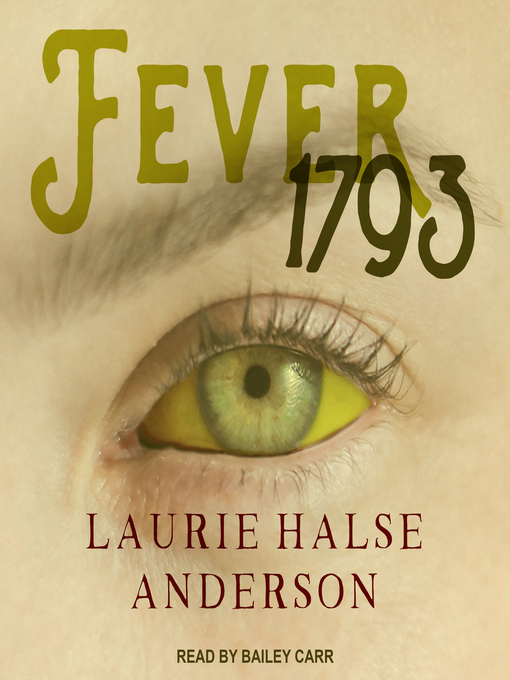
Philadelphia, the Place that Loves You Back.Anderson, whose novel ''Speak'' was a finalist for the National Book Award, has fashioned a gripping story about living morally under the shadow of rampant death. ''Fever 1793'' builds to a beautiful finale. With Nell and Eliza's nephews under their wings, the two women scrambleįor food, tend the sick and await the frost that will end the epidemic. With the epidemic still in full force, Mattie is reunited with Eliza, who's nursing disease victims with the Free African Society. Mattie, all alone now, searching for food and her mother, finds and takes up an orphaned child, Mattie and her grandfather hole up in the deserted coffeehouse, where they are assaulted by robbers.

Mattie falls sick, but recovers under the enlightened care of a French physician, and she and her grandfather return to Philadelphia, only to find Lucille missing. Lucille orders MattieĪnd her grandfather away from Philadelphia and the epidemic. Mattie witnesses her mother's radical purgings and bloodlettings, practices advocated by Dr. One sweltering August day, Lucille contracts yellow fever, and Mattie's world caves in. Nearby, Mattie's beau works as a painter's apprentice

Their hired cook is Eliza, a young widow, a free black and Mattie's best friend.

Who served in George Washington's army, presides as chief raconteur. Mattie, tenacious and tenderhearted, assists her widowed mother, Lucille, in running a coffeehouse, where Mattie's grandfather, Pitching the reader into this setting, Anderson tethers her story to the plight of her 14-year-old narrator, Matilda Cook. (One-tenth of the city's population was killed in three months by the mosquito-borne disease.) Aurie Halse Anderson's staccato title refers to the ruthless 1793 yellow fever epidemic that decimated Philadelphia, then the capital of the United


 0 kommentar(er)
0 kommentar(er)
